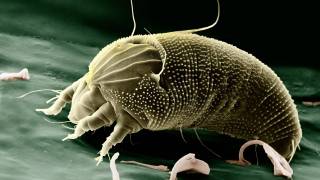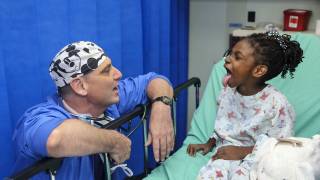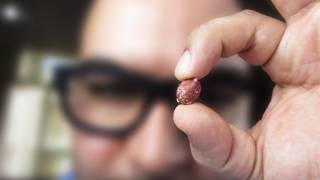Egg Allergy Immunotherapy Progresses Into Phase 2 Study

A California biopharmaceutical company announced that it has randomized its 1st patient in a small phase 2 clinical trial of AR201 for the treatment of egg allergy.
Aimmune Therapeutics’s AR201 is an investigational biological drug for use in ‘oral immunotherapy’ for egg allergy as a treatment to reduce the frequency and severity of allergic reactions following exposure to hen eggs.
This is important news since there is no approved preventive therapy for egg allergy, which is a serious condition that disproportionately affects children.
The US Food and Drug Administration says ‘while more than 160 foods can cause allergic reactions in people, just 8 are the most common allergenic foods.
These foods; Milk, Eggs, Fish, Crustacean shellfish, Tree nuts, Peanuts, Wheat, Soybeans, account for 90 percent of food allergic reactions and are the food sources from which many other ingredients are derived.
Nearly 6 million people worldwide are allergic to eggs, including 800,000 in the U.S. and as many as 4 million across Asia, where allergy to egg is the most common food allergy.
Avoidance of egg products is exceptionally challenging for individuals with an egg allergy because of the ubiquity of eggs as an ingredient in many foods.
Jayson Dallas, M.D., President and Chief Executive Officer of Aimmune, said in a press release on August 22, 2019, “In developing AR201, we hope to help alleviate the constant fear of accidental exposure, which can have a significant negative impact on the quality of life for egg-allergic patients and their families.”
The AR201 Phase 2 Clinical Trial is a randomized, double-blind, placebo-controlled phase 2 study with 84 participants evaluating the efficacy and safety of AR201 oral immunotherapy for desensitization in patients ages 4 to 26 years with hen egg allergy.
Eligible patients who develop dose-limiting allergy symptoms after consuming single doses of ≤300 mg dried egg white protein in a screening double-blind, placebo-controlled food challenge (DBPCFC) will be randomly assigned 2:1 to blinded treatment with AR201 or placebo.
This study will use a standardized method for oral immunotherapy with AR201 that will consist of initial dose escalation at low doses, gradual dose escalation over time to limit allergic reactions (escalating one dose level every two weeks), and fixed therapeutic dosing at 300 mg/day dried egg white protein.
The primary efficacy endpoint is the proportion of patients treated with AR201 compared with placebo who tolerate a single highest dose of at least 1,000 mg dried egg white protein with no more than mild allergy symptoms at the exit DBPCFC.
Secondary efficacy endpoints include the proportion of patients who tolerate a single highest dose of at least 300 mg dried egg white protein with no more than mild allergy symptoms during the exit DBPCFC; the proportion of patients who tolerate a single highest dose of at least 600 mg dried egg white protein with no more than mild allergy symptoms during the exit DBPCFC; and the maximum severity of allergy symptoms after consuming dried egg white protein during the exit DBPCFC.
Aimmune Therapeutics, Inc., is a biopharmaceutical company developing oral treatments for life-threatening food allergies.
Our Trust Standards: Medical Advisory Committee
























